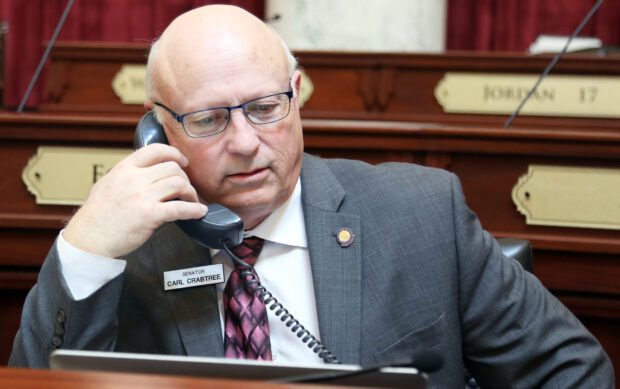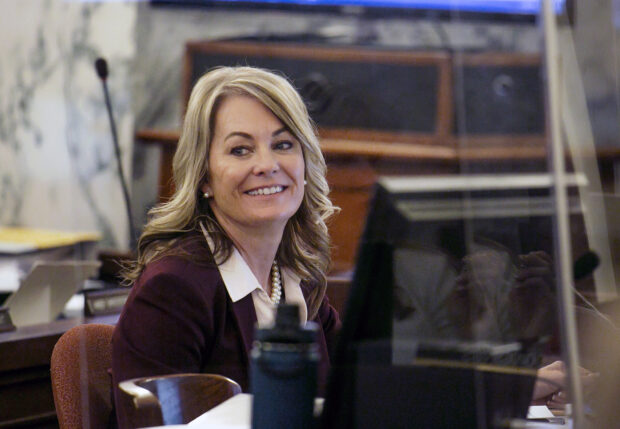The Idaho Supreme Court punted on the big question last week: Is it unconstitutional to expect parents to fork over fees to pay for a full day of kindergarten?
The non-ruling at least puts the matter into focus, at an opportune time. When legislators return to the Statehouse in barely a month, state-funded, all-day kindergarten could be one of the hottest topics in education.
To a big extent, Idaho has moved past debating the merits of all-day kindergarten. Many parents of young kids are firmly on board with the idea — right alongside education stakeholders and business groups. Responding to popular demand, most school districts offer all-day kindergarten to some or all of their students, building on the half-day session covered by state funding.
So, who pays for all-day kindergarten? And who gets to go?
This gets to the heart of the lawsuit Peyton Gifford and Mollie Galbadon filed against the West Ada School District. The parents said they wanted to send their son to full-day kindergarten, at one of the 27 West Ada schools that offer the option, but they said they could not afford the $260 monthly tuition.
The parents contend that the fees violate the Idaho Constitution, which requires the state “to establish and maintain a general, uniform and thorough system of public, free common schools.”
The Supreme Court’s Nov. 22 ruling takes no position on the constitutional question, kicking the case back to District Court. However, the court chided West Ada for failing to defend its fee structure. And, citing the U.S. Supreme Court’s landmark 1954 Brown vs. Board of Education ruling, the state’s highest court gave a nod to the issue of equity.
“Parents are contending, and have made at least a facial showing, that West Ada is running two separate but unequal kindergarten programs — a full-day program for those who can afford it and a half-day program for those who cannot.”
Lawmakers could render this legal argument moot — not in time for Gifford and Galbadon, of course, but in time for soon-to-be kindergartners and their parents. If the state decides to foot the bill for all-day kindergarten, all of these local funding problems could melt away.
No more need for tuition or fees in districts such as West Ada, which collected $8 million from parents of kindergartners between 2014 and 2020.
No more need to put supplemental property tax levies into kindergarten, the standard practice in numerous districts.
No more need to use state literacy program dollars to cobble together kinder.
The stars appear aligned. All-day kindergarten has widespread support: from Gov. Brad Little, the State Board of Education, state superintendent Sherri Ybarra, legislators of both parties, and education and business lobbyists. And with the state sitting on a record $1.6 billion surplus, there’s plenty of money for a launch.
But will the Legislature agree on something?
Rep. Wendy Horman, R-Idaho Falls, says she has heard about at least eight kindergarten bills or proposals. And Horman, a key budget-writer on the Joint Finance-Appropriations Committee, has some concerns of her own — about the merits of putting 5-year-olds in school all day, and the wisdom of relying on a surplus that could be artifically swollen with one-time federal coronavirus relief money.
“I think there are questions about sustainability,” Horman said Wednesday, “(and) it’s a massive philosophical shift.”

Sen. Carl Crabtree acknowledges that the marketplace of all-day kindergarten ideas is crowded. “I’m sure every rock has a proposal under it,” said the Grangeville Republican, a JFAC vice chair and a Senate Education Committee member.
But he’s confident that something will pass, for three reasons:
- Too many young kids are unprepared for school. Crabtree cites one school in his rural legislative district, where 80 percent of first-graders are reading below grade level.
- If state funding replaces supplemental levies, that would provide property tax relief in many parts of the state.
- State leaders have been talking about all-day kinder long enough. Crabtree cites Little’s education task force, which met through the summer of 2019, and recommended expanded all-day kindergarten.
Crabtree and Rep, Judy Boyle, R-Midvale, proposed an all-day kindergarten bill in March. It would keep all-day kindergarten optional — kindergarten has never been mandatory in Idaho, anyway. But it would be universal; the money would cover any school that wants to offer all-day kindergarten, and pay for any student who shows up. The State Board approved a similar universal proposal in August.
As a State Board member, Ybarra voted for this proposal. But days later, she unveiled her own scaled-back proposal, which would make all-day kindergarten available only to students who score below grade level on the Idaho Reading Indicator.

That would be a cheaper option. Ybarra says her proposal would cost about $39 million; the State Board and Crabtree say their plans would cost about $42 million. But Crabtree acknowledges that this is all guesswork, because no one is sure how many schools and parents would sign on.
Ybarra spokeswoman Kris Rodine defended the superintendent’s $39 million option this week; based on historical IRI scores, about two-thirds of kindergartners would be eligible. “(It) would provide the option of full-day kindergarten for students who need it most,” Rodine said.
But three prominent education groups — the Idaho Education Association, the Idaho School Boards Association and Idaho Business for Education — say their members prefer a universal approach.
“Test scores shouldn’t prevent a student from accessing full-day kindergarten,” IEA President Layne McInelly said.
“I think you really have to have a universal offering to be in compliance with the state Constitution,” said Rod Gramer, the IBE’s CEO.
This won’t just be a discussion of policy, of course. In an election-year session, every debate has political overtones. And Crabtree doesn’t hide his frustration with Ybarra and her State Department of Education, saying Ybarra is only jumping on this issue now, in order to score political points.
“We will get it done next year, in spite of the fact that the department has done nothing,” Crabtree said Thursday.
There’s plenty of impetus for all-day kindergarten — and the West Ada lawsuit only adds to that.
There’s also plenty of surplus money at hand.
But that doesn’t mean something passes easily, or quickly.
Each week, Kevin Richert writes an analysis on education policy and education politics. Look for his stories each Thursday.
